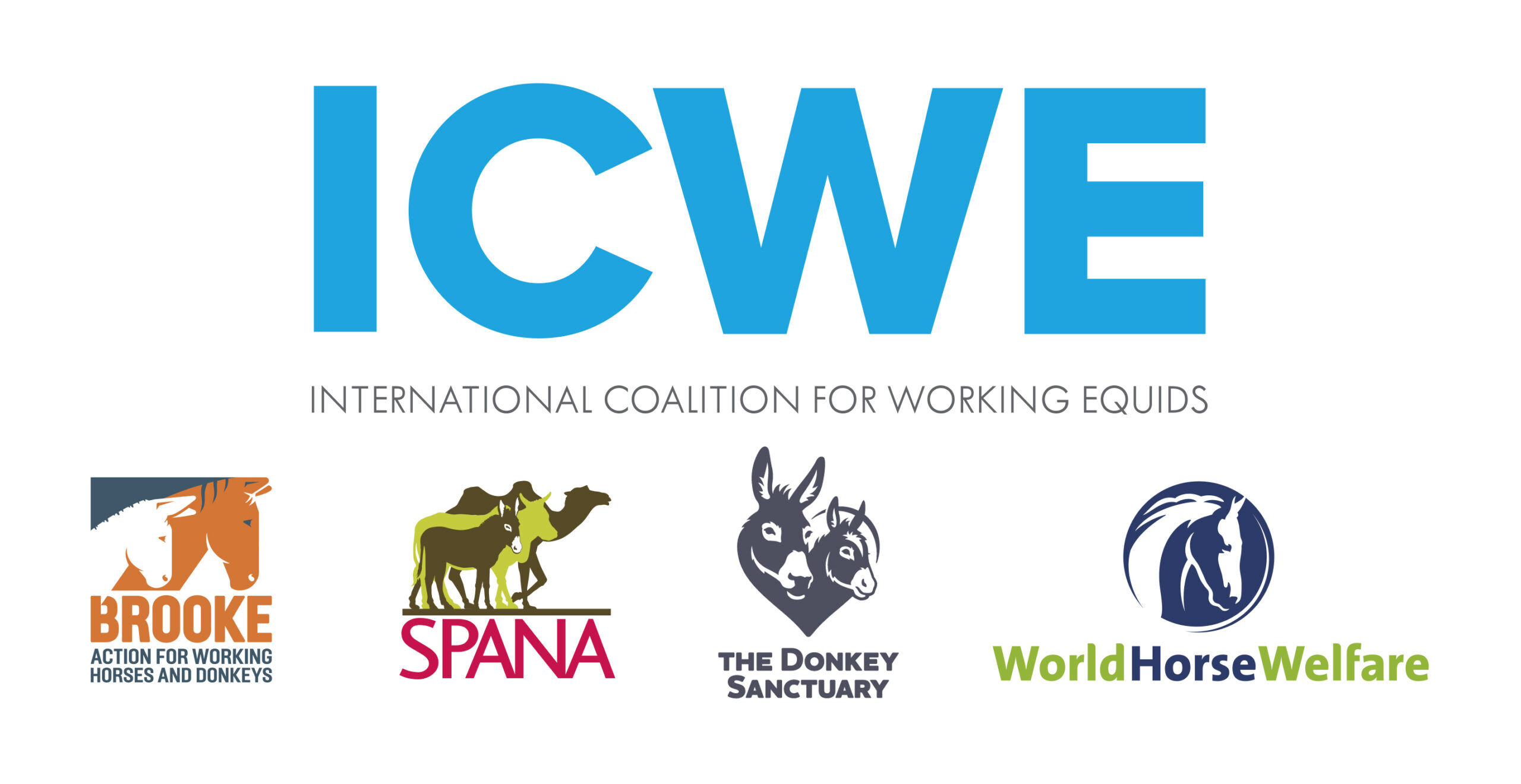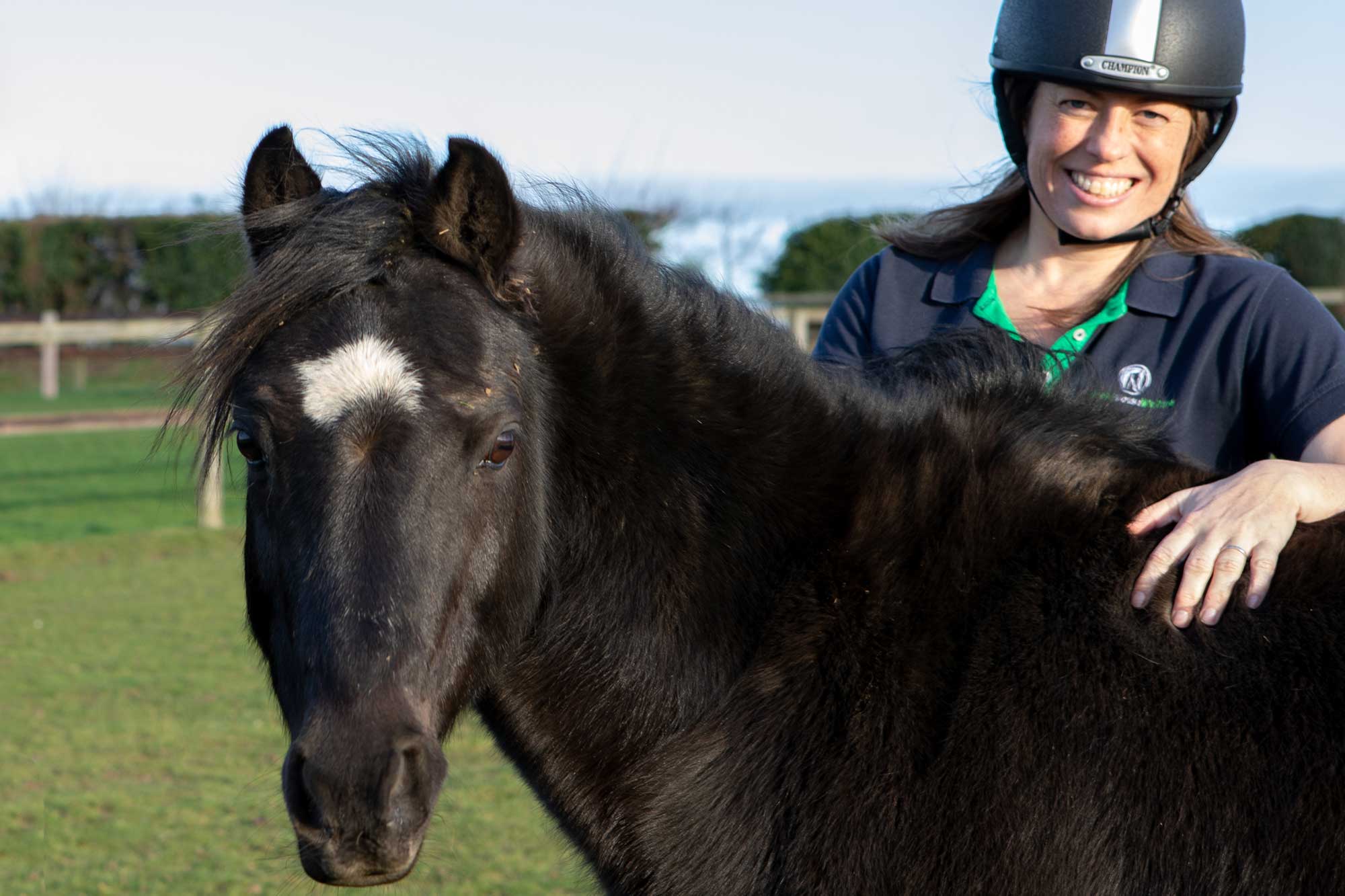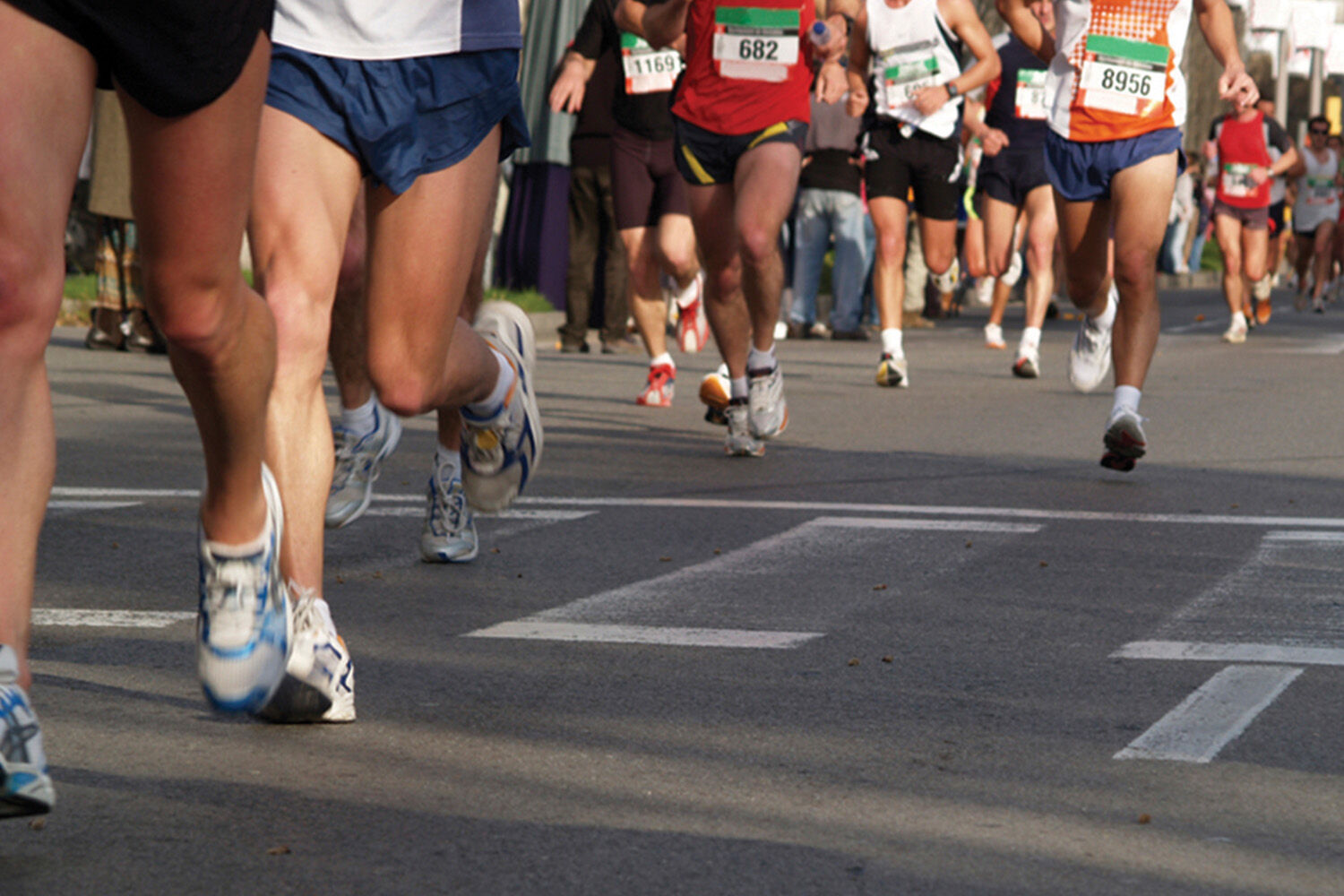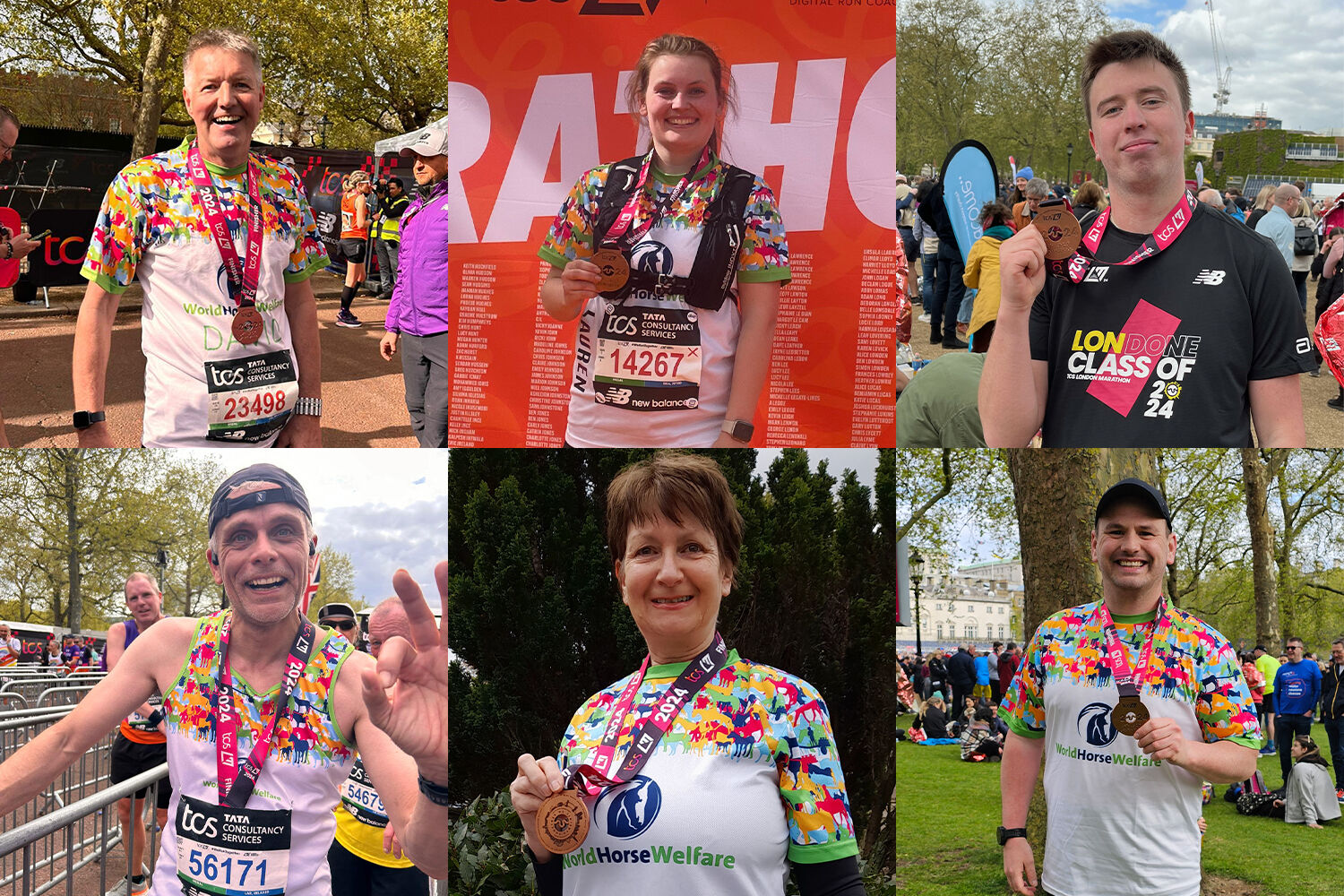The Donkey Sanctuary and World Horse Welfare represent equine welfare charities at the UN General Assembly
The two charities highlighted the vital contribution of working horses, donkeys and mules in achieving the UN Sustainable Development Goals.
Posted on 05/11/2018

The Donkey Sanctuary and World Horse Welfare held talks at the UN General Assembly this week to highlight the vital contribution of working horses, donkeys and mules in achieving the UN Sustainable Development Goals (SDGs).
The leading equine welfare charities held meetings with member states, UN Departments and other civil society partners to establish a core team of UN Member States, networks and organisations to help champion the importance of horses, donkeys and mules to the livelihoods of 600 million people worldwide and the need to provide better support for their health and welfare.
“This is an exciting development in our UN engagement; the General Assembly is the large forum where governments from across the world meet together to thrash out issues. We are there to ensure the voices of millions of donkeys, mules and horses do not go unheard.”
Mike Baker, The Donkey Sanctuary Chief Executive
The UN SDGs are a bold commitment to end hunger, protect the planet and ensure prosperity for all. Projects are aimed at eliminating poverty worldwide as well as ensuring access to clean water, sanitation and decent work opportunities to encourage economic growth. The Sustainable Development Goals (SDGs) are the successor to the Millennium Development Goals (MDGs), which applied only to the developing world. These new goals run from 2015 to 2030 and are due for review in 2019 when the agenda for work over the next five years will be set.
“This year advocacy teams at The Donkey Sanctuary and World Horse Welfare have worked together to show how the bold ambitions of the UN Sustainable Development Goals (SDGs) can be assisted by working with communities to care for and protect their working animals. We all want less poverty and less hunger but we are showing that improving the welfare of the working donkeys, mules and horses is not an optional extra but an integral part of making that happen.”
Ian Cawsey, The Donkey Sanctuary UN Ambassador
“We are delighted that so many countries where working equines are visible immediately recognised their value to the SDG’s once we highlighted the link. They know that for many of the poorest communities, the only way to sustain their families is through the transport and traction provided by their horses, donkeys or mules. Better caring for these animals to protect their ability to make a living, earn more and access water and markets for their goods, as well as education for their children, is therefore essential for sustainable development to take place.”
Roly Owers, World Horse Welfare Chief Executive
“This is a crucial time and a fantastic opportunity for us. It is only recently the UN General Assembly for the first time agreed language on the need to protect working animals which was a fantastic step forward. Now we have to persuade them to turn words into action and we will work tirelessly to ensure donkeys, mules and horses everywhere have their voices heard as we work with our partners to make this a reality.”
Mike Baker, The Donkey Sanctuary Chief Executive
During a lunch hosted by the International Fund for Agricultural Development at the UN headquarters in New York, The Donkey Sanctuary CEO Mike Baker and World Horse Welfare CEO Roly Owers greeted guests from across the UN, Africa and civil society organisations Others at the lunch included UNDESA, UN diplomats from Senegal, Kenya, Nigeria, and Egypt, plus representatives from the UN Food and Agriculture Cluster, the Tellus Institute, the Stakeholder Forum, Thinking Animals United and CIVICUS.
“Development aspirations of SDGs will not be realised if animals are not part of the equation.”
Felix Dodds, University of North Carolina
After all the meetings, Mike Baker concluded:
“We share a passion with our colleagues at World Horse Welfare to ensure as many working donkeys, horses and mules as possible get the care and welfare they need. We deliver that ourselves every day to thousands of equids but across the world there are many millions who need more protection. We cannot do this alone. We need to persuade others that this is something they should do and moreover it is in their interest to do. What was striking in our meetings at the UN was whilst people agreed with us they had not really considered the issue previously and wanted to learn more. So there is an opportunity and we will be following up these very encouraging conversations to build the partnerships that can build a better world for working equids far beyond the limitations of our own organisations.”
Mike Baker, The Donkey Sanctuary Chief Executive
Photo left to right: Jessica Stark, Director of Communications and Public Affairs, World Horse Welfare, Roly Owers, CEO World Horse Welfare, Mike Baker, CEO, The Donkey Sanctuary, Ian Cawsey, UN Ambassador, The Donkey Sanctuary, Valentina Riva, Advocacy Manager, The Donkey Sanctuary.
Topics
Related News

International coalition of charities brings together Commonwealth vets to tackle working equid welfare
The International Coalition of Working Equids hosted a workshop as part of the 7th Pan Commonwealth Veterinary Conference.

The crucial role of working animals in Sustainable Development
People and organisations from around the world came together last Friday (25th February 2022) at a virtual event to demonstrate the crucial role of working animals at the Africa Regional Forum on Sustainable Development.
Recommended Blog Posts

Can you cut the costs of horse ownership without compromising on their care?
Chief Field Officer Claire Gordon looks at ways to cut costs without compromising on care.

Our London Marathon runners 2024
We find out what their motivations are for running for our charity and how their training is going.

Celebrating our London Marathon runners
We catch up with our six runners to see what running the London Marathon is really like.
Enjoy reading stories like this?
Join over 55,000 other horse lovers and sign up for our email newsletter

Join over 55,000 other horse lovers and sign up for our email newsletter
Sign me up now